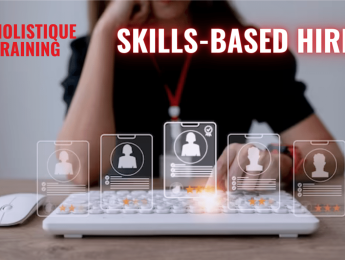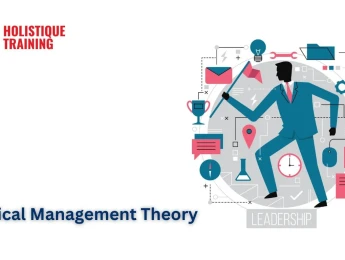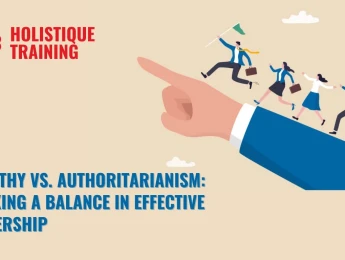- Table of Contents
- What Is Skills-Based Hiring?
- What Is Reskilling?
- The Benefits of Skills-Based Hiring
- How Does Skills-Based Hiring Relate to HR Goals?
- The Role of Soft Skills in Skills-Based Hiring
- How to Adopt Skills-Based Hiring Practices as an HR Professional
- Exploring the Future of Skills-Based Hiring
- Conclusion
The traditional approach to hiring, which heavily relies on education and experience as primary indicators of suitability, is rapidly being reimagined. In a world where skill requirements are evolving at an unprecedented pace, organisations are recognising the need for a more progressive recruitment strategy. Skills-based hiring has emerged as a game-changer, shifting the focus from credentials to competencies and potential. By embracing this transformative approach, HR professionals can unlock a host of benefits, from accessing a wider talent pool to fostering diversity and adaptability. In this blog post, we will delve into the concept of skills-based hiring, explore its far-reaching advantages, and outline practical steps for HR professionals to adopt these practices and lead their organisations towards success.
What Is Skills-Based Hiring?
Skills-based hiring is an innovative recruitment strategy that prioritises candidates' skills, competencies, and potential over conventional measures such as education or previous job titles. It aims to identify individuals who possess the right skill set to perform a specific job, irrespective of their background or experience. By focusing on what candidates can bring to the table rather than their credentials, skills-based hiring helps organisations tap into a larger talent pool and uncover hidden potential.
What Is Reskilling?
Reskilling is a key component of skills-based hiring. It refers to the process of equipping employees with new skills to enable them to perform different roles within an organisation. Reskilling is crucial in a rapidly changing business landscape where technological advancements and automation reshape job requirements. By investing in reskilling initiatives, organisations can optimise their workforce and future-proof their talent pipeline.
The Benefits of Skills-Based Hiring
According to Vervoe, prominent companies like Google, Apple, and IBM have already abandoned the requirement of college degrees for applicants. Instead, they have embraced skills-based hiring as a means to assess the potential of prospective employees, which shows how important it has become. In addition, the trend towards skills-based hiring is gaining momentum in the United States. A recent article published by Forbes revealed that job postings on LinkedIn have witnessed a significant shift, with a 21% increase in listings that emphasise skills and responsibilities rather than qualifications over the past year. This data further underscores the growing recognition of the importance of skills in the hiring process.
Here are some reasons why:
Expanded Talent Pool
Skills-based hiring allows organisations to cast a wider net, reaching candidates who may have acquired relevant skills through alternative avenues like self-study, online courses, or practical experiences. This broadened talent pool brings in diverse perspectives and fresh ideas, fostering innovation and creativity within the organisation.
Improved Job-Matching
By emphasising skills over qualifications, skills-based hiring improves the likelihood of finding candidates who are a perfect fit for the job. Traditional hiring practices often overlook individuals with potential due to their lack of formal credentials. Skills-based hiring enables organisations to uncover hidden gems and match them with roles that align with their abilities and aspirations.
Adaptability and Agility
In today's dynamic business environment, organisations must be agile and adapt quickly to changing market demands. Skills-based hiring equips organisations with a workforce that possesses transferable skills and a growth mindset. Such employees are more likely to embrace change, learn new technologies, and seamlessly transition between roles, ensuring organisational resilience and competitiveness.
Reduced Bias and Unconscious Discrimination
Traditional hiring practices can inadvertently perpetuate bias and discrimination, leading to a lack of diversity within organisations. Skills-based hiring shifts the focus from personal attributes to objective skills and abilities, mitigating bias in the recruitment process. By prioritising merit and potential, organisations can build diverse and inclusive teams that reflect the customers they serve and foster a culture of equal opportunity.
Enhanced Employee Retention
In the realm of skills-based hiring, employees are placed in roles that align perfectly with their skill sets. When individuals are engaged in work that complements their abilities, job satisfaction soars. Satisfied employees are more likely to stay with the organisation, reducing turnover rates. This retention leads to a stable workforce, saving the organisation both time and resources that would otherwise be spent on recruitment and onboarding processes.
Boosted Employee Morale and Motivation
Skills-based hiring recognises and appreciates employees for their unique skills and competencies. When employees feel valued for their expertise, their morale receives a significant boost. Recognising one’s skills and providing opportunities to apply them in meaningful ways instils a sense of pride and motivation. This positive atmosphere enhances collaboration and teamwork, creating a workplace where employees are enthusiastic about their contributions.
Streamlined Onboarding and Training Processes
Traditional hiring often involves hiring candidates based on qualifications and then providing extensive training to bridge the gap between their skills and job requirements. Skills-based hiring, however, ensures that candidates are already equipped with the necessary skills. As a result, onboarding and training processes are streamlined and more efficient. New employees can quickly integrate into their roles, contributing productively from day one. This efficiency is particularly valuable in fast-paced industries where time-to-productivity is critical.
Improved Problem-Solving and Decision-Making
A diverse team with a wide range of skills and experiences is better equipped to tackle complex problems and make informed decisions. Skills-based hiring inherently promotes diversity by focusing on competencies. When individuals from diverse backgrounds collaborate, they bring unique perspectives to the table. This diversity in problem-solving approaches can lead to innovative solutions and well-informed decisions, enhancing the organisation's overall effectiveness and competitiveness.
Higher Adaptability to Market Trends
Skills-based hiring ensures that organisations have a workforce capable of adapting swiftly to changing market demands. In industries driven by technological advancements and evolving consumer preferences, adaptability is key to survival. Employees hired based on skills are often more open to learning and embracing new technologies. Their diverse skill sets enable organisations to pivot quickly, entering new markets or introducing innovative products and services in response to emerging trends. This agility ensures that the organisation remains relevant and competitive in a rapidly changing business landscape.
Increased Customer Satisfaction
A skilled workforce directly impacts the quality of products and services delivered to customers. When employees possess the necessary skills to excel in their roles, they can provide superior service, leading to higher customer satisfaction levels. Satisfied customers are more likely to become repeat buyers and brand advocates, contributing to the organisation's long-term success. Skills-based hiring, by ensuring that employees are adept in their areas of expertise, indirectly fosters customer loyalty and positive brand reputation.
Optimised Resource Allocation
By hiring individuals based on their specific skills, organisations can optimise their resource allocation. Instead of investing in extensive training programmes to bridge skill gaps, resources can be redirected to other strategic initiatives. This optimised allocation of resources improves the organisation's overall efficiency and cost-effectiveness, allowing it to invest in areas that directly contribute to growth and innovation.
Elevated Team Collaboration and Communication
A workforce chosen for their skills and competencies tends to function seamlessly as a team. When team members possess complementary skills, collaboration becomes more natural, and communication flows more effectively. This synergy enhances teamwork, leading to increased productivity and the successful execution of projects. Furthermore, employees in skills-based hiring environments often find it easier to seek help or guidance from colleagues, fostering a supportive work atmosphere where knowledge sharing is encouraged.
How Does Skills-Based Hiring Relate to HR Goals?
Skills-based hiring aligns closely with the overarching goals of HR departments in modern organisations. Here's how it relates to key HR goals:
Attracting and Retaining Top Talent
By adopting skills-based hiring practices, HR professionals can attract highly skilled candidates who might not meet conventional qualifications but possess the potential to excel. This approach can also enhance employee retention as individuals are placed in roles that align with their skills and aspirations, fostering job satisfaction and career growth.
Developing a Learning Culture
Skills-based hiring goes hand in hand with cultivating a learning culture within organisations. HR professionals can champion reskilling and upskilling initiatives, providing employees with opportunities to acquire new skills and adapt to evolving job requirements. By fostering continuous learning, organisations enhance employee engagement and build a culture of growth and development.
Enhancing Organisational Performance
Skills-based hiring facilitates the identification of high-potential candidates, enabling HR professionals to strategically place individuals in roles where their skills are maximised. This targeted deployment of talent enhances organisational performance, productivity, and innovation, ultimately driving business success.
The Role of Soft Skills in Skills-Based Hiring
While technical expertise forms the backbone of many professions, soft skills are the glue that holds teams together and ensures the smooth functioning of any organisation. In the context of skills-based hiring, where competencies take centre stage, the significance of soft skills cannot be overlooked. Here’s a detailed exploration of the vital role soft skills play in skills-based hiring:
Communication Skills
Effective communication is the cornerstone of teamwork. Individuals with strong communication skills can articulate ideas clearly, actively listen, and resolve conflicts amicably. In skills-based hiring, assessing a candidate’s communication abilities ensures they can collaborate seamlessly with colleagues, clients, and stakeholders. HR professionals can conduct scenario-based interviews or group discussions to gauge a candidate’s communication proficiency.
Leadership and Emotional Intelligence
Leadership skills, coupled with emotional intelligence, are invaluable in skills-based hiring. Leaders inspire and motivate teams, driving them towards common goals. Emotional intelligence enables individuals to navigate interpersonal relationships with empathy and understanding. Employees with high emotional intelligence can manage their emotions and effectively handle workplace challenges. HR professionals can look for leadership experiences in a candidate’s background and incorporate situational judgement tests to assess emotional intelligence during the hiring process.
Adaptability and Problem-Solving
In today’s dynamic work landscape, adaptability is a prized soft skill. Employees who can readily adapt to new technologies, methodologies, and work environments are assets to any organisation. Skills-based hiring should prioritise candidates who showcase a growth mindset, willingness to learn, and resilience in the face of challenges. Problem-solving abilities, another critical soft skill, enable employees to tackle complex issues creatively. Scenario-based assessments and puzzles can be integrated into the hiring process to evaluate these skills effectively.
Time Management and Organisational Skills
Time management and organisational skills are essential in any role. Employees who can prioritise tasks, meet deadlines, and manage their workload efficiently contribute significantly to organisational productivity. Skills-based hiring should identify candidates who demonstrate strong organisational skills, as they can handle multiple responsibilities effectively. HR professionals can evaluate these skills through past work experiences, time-bound tasks, or structured interviews focusing on organisational abilities.
Teamwork and Collaboration
The ability to work harmoniously in a team is vital for a productive workplace. Individuals with strong teamwork skills can collaborate effectively, share knowledge, and leverage collective strengths to achieve common objectives. Skills-based hiring should assess a candidate’s ability to work in diverse teams, adapt to different team dynamics, and contribute positively to group efforts. Behavioural interviews and team-based projects can help evaluate a candidate’s teamwork skills and collaborative spirit.
Creativity and Innovation
Soft skills like creativity and innovation are increasingly valued in today’s competitive landscape. Creative employees can think outside the box, generate novel ideas, and propose innovative solutions to challenges. HR professionals should seek candidates who demonstrate creative thinking in their approach to problem-solving. Creativity assessments, brainstorming sessions, and portfolio reviews can provide insights into a candidate’s inventive abilities.
Conflict Resolution and Negotiation
Conflicts are inevitable in any workplace. Soft skills such as conflict resolution and negotiation empower employees to address disputes effectively and find mutually beneficial solutions. Employees who can navigate conflicts tactfully contribute to a positive work environment. HR professionals should assess a candidate’s ability to handle conflicts and negotiate favourable outcomes. Behavioural interviews focusing on past conflict resolution experiences can provide valuable insights into a candidate’s skills in this area.
In summary, soft skills are the linchpin that elevates technical competencies to new heights. In skills-based hiring, recognising and valuing these skills is crucial. By focusing on communication, leadership, adaptability, time management, teamwork, creativity, and conflict resolution, organisations can build a workforce that not only excels in their roles but also fosters a collaborative, innovative, and harmonious workplace culture. HR professionals, as custodians of organisational culture, play a pivotal role in identifying and nurturing these soft skills, ensuring that organisations thrive in the complex, interconnected world of modern work.
Table 1: Skills recruiters should be looking for in candidates nowadays
How to Adopt Skills-Based Hiring Practices as an HR Professional
After recognising the numerous advantages of skills-based hiring, it’s important to explore how HR professionals can effectively adopt these practices within their organisations. By updating job descriptions, implementing skill-based assessments, fostering reskilling initiatives, and embracing technology, HR professionals can create a recruitment and talent management framework that leverages skills and competencies, resulting in enhanced organisational performance and a thriving workforce.
Update Job Descriptions
Shift the focus of job descriptions from qualifications and experience to specific skills and competencies required for the role. Clearly articulate the skills and abilities that are essential for success, allowing candidates to gauge their fit based on merit rather than traditional criteria.
Table 2: Example of a skills-based job description
Skills-Based Job Description |
Position: Data Analyst |
Required Skills: |
- Proficiency in data analysis tools (e.g., Python, R) |
- Strong problem-solving skills |
- Effective communication and data visualisation |
- Ability to work collaboratively in a team environment |
Skill-Based Assessments
Incorporate skill-based assessments in the hiring process to evaluate candidates objectively. These assessments could include practical tests, case studies, or simulations that gauge the candidates' ability to apply their skills to real-world scenarios.
Reskilling Initiatives
Develop reskilling programmes within the organisation to provide employees with opportunities to acquire new skills and broaden their capabilities. Identify skill gaps within the workforce and design training programmes or provide access to external resources to fill those gaps effectively.
Collaborate with Learning and Development
Work closely with learning and development teams to align reskilling initiatives with the organisation's strategic objectives. Collaborate on the design and implementation of training programmes that address emerging skill requirements and foster a culture of continuous learning.
Embrace Technology
Leverage technology tools and platforms to identify candidates with the right skills efficiently. Applicant tracking systems, skill-based assessment platforms, and online learning platforms can streamline the skills-based hiring process and enable HR professionals to make data-driven decisions.
Exploring the Future of Skills-Based Hiring
As the landscape of work continues to evolve in response to technological advancements, globalisation, and changing societal norms, skills-based hiring is poised to undergo exciting transformations. The future of skills-based hiring promises innovations that will reshape how organisations identify, nurture, and utilise talent. Let’s peer into this future and explore the potential developments in the realm of skills-based hiring.
1. Skills-Based AI Matching and Predictive Analytics
The integration of Artificial Intelligence (AI) in skills-based hiring is on the horizon. AI algorithms can analyse vast datasets related to skills, job performance, and industry trends. By leveraging this data, AI tools can precisely match candidates with job requirements, taking into account not only technical skills but also soft skills and cultural fit. Moreover, predictive analytics powered by AI can forecast a candidate’s future potential within the organisation, aiding HR professionals in strategic talent planning. This predictive approach ensures that organisations not only hire for current needs but also future-proof their workforce against upcoming challenges.
2. Skills-Based Gig Economy Platforms
The gig economy, characterised by short-term, flexible jobs, is expanding rapidly. Skills-based hiring will be central to this evolution. Specialised online platforms will emerge, connecting organisations with skilled freelancers and contractors. These platforms will not merely focus on generic job titles but will intricately match project requirements with the precise skills of freelancers. As a result, organisations will have access to a global pool of talent for specific projects, allowing for unparalleled flexibility and cost-effectiveness. Skills-based gig platforms will revolutionise how businesses assemble teams, fostering a dynamic, project-based workforce.
3. Data-Driven Skills Development and Personalised Learning
The wealth of data generated through skills-based hiring processes will be harnessed to revolutionise employee development. Organisations will employ advanced analytics to identify skill gaps within their workforce, enabling personalised learning paths for employees. AI-driven systems will recommend tailored training modules, both internal and external, based on individual skills and career aspirations. This approach ensures that employees continuously enhance their skills, aligning them with organisational goals. By investing in targeted skill development, organisations will cultivate a workforce adept at navigating future challenges.
4. Virtual Reality (VR) and Augmented Reality (AR) Skill Assessments
Traditional skill assessments may soon make way for immersive experiences using VR and AR technologies. Candidates can be placed in virtual work environments where their skills are put to the test in real-time scenarios. For instance, a software developer might debug a virtual application, or a project manager could oversee a simulated project. These immersive assessments provide a holistic view of a candidate's abilities, going beyond conventional evaluations. HR professionals can gain deeper insights into how candidates perform under pressure, collaborate in virtual teams, and solve complex problems, making the hiring process more accurate and insightful.
5. Global Talent Mobility and Remote Skills-Based Hiring
The future of skills-based hiring will transcend geographical boundaries. Organisations will increasingly tap into a global talent pool, hiring employees based on skills rather than physical location. Remote work, coupled with skills-based hiring, will enable organisations to assemble teams with diverse expertise from around the world. This approach fosters a multicultural work environment, encouraging collaboration among individuals with different cultural backgrounds. Moreover, it allows organisations to source specialised skills that might be scarce in their local markets, promoting innovation and expertise exchange on a global scale.
In summary, the future of skills-based hiring is exciting and transformative. AI-driven matching, the gig economy’s evolution, data-driven learning, immersive skill assessments, and global talent mobility are set to redefine how organisations build their workforce. HR professionals will find themselves at the forefront of these innovations, leveraging technology and data to create agile, diverse, and highly skilled teams. Embracing these future trends in skills-based hiring will not only ensure organisations remain competitive but also empower them to thrive in an ever-changing, skill-centric future of work.
Conclusion
Skills-based hiring represents a paradigm shift in the way organisations approach talent acquisition. By focusing on skills, organisations can tap into a broader talent pool, improve job matching, foster diversity and inclusion, and enhance overall organisational performance. HR professionals play a critical role in driving this transformative change by adopting skill-based hiring practices, championing reskilling initiatives, and cultivating a learning culture within their organisations. Embracing skills-based hiring is an investment in the future, equipping organisations with the agility and adaptability needed to thrive in an ever-evolving business landscape.
To empower HR professionals with in-depth knowledge about the intricacies of modern hiring strategies, we invite you to embark on a transformative journey with our course, ‘An Introduction into Human Resources.’ Discover the secrets of successful skills-based hiring, gain expert insights, and master the art of building dynamic, high-performing teams. Don't just follow the trends; shape the future of HR with us! Enrol now and unlock the potential of your organisation's greatest asset – its people.























